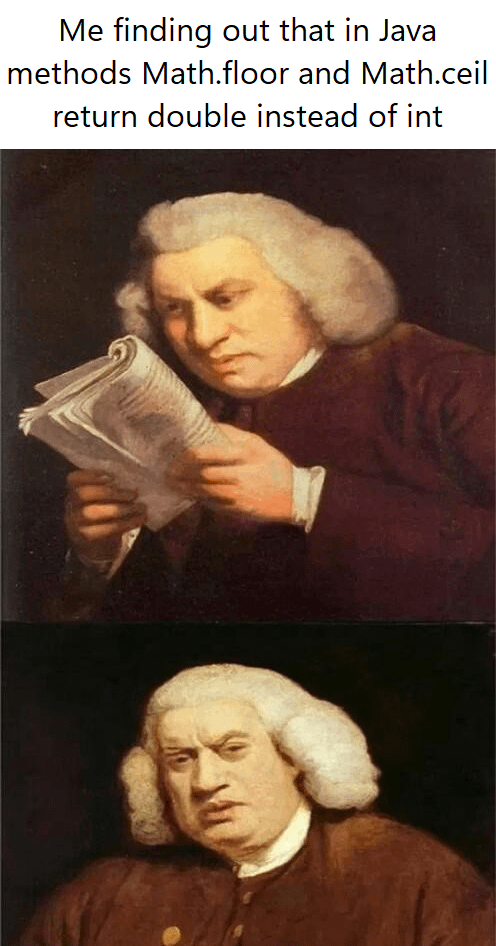this post was submitted on 05 Aug 2023
537 points (92.8% liked)
Programmer Humor
19935 readers
988 users here now
Welcome to Programmer Humor!
This is a place where you can post jokes, memes, humor, etc. related to programming!
For sharing awful code theres also Programming Horror.
Rules
- Keep content in english
- No advertisements
- Posts must be related to programming or programmer topics
founded 2 years ago
MODERATORS
you are viewing a single comment's thread
view the rest of the comments
view the rest of the comments

How does that work? Is it just because double uses more bits? I'd imagine for the same number of bits, you can store more ints than doubles (assuming you want the ints to be exact values).
No, it has an exponent component: https://en.m.wikipedia.org/wiki/Double-precision_floating-point_format
No, I get that. I'm sure the programming language design people know what they are doing. I just can't grasp how a double (which has to use at least 1 bit to represent whether or not there is a fractional component) can possibly store more exact integer vales than an integer type of the same length (same number of bits).
It just seems to violate some law of information theory to my novice mind.
It doesn't store more values bit for bit, but it can store larger values.
I don't think that's possible. Representing more exact ints means representing larger ints and vice versa. I'm ignoring signed vs. unsigned here as in theory both the double and int/long can be signed or unsigned.
Edit: ok, I take this back. I guess you can represent larger values as long as you are ok that they will be estimates. Ie, double of N (for some very large N) will equal double of N + 1.